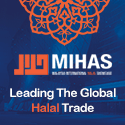KUALA LUMPUR, July 7 (Bernama) — Malaysia can provide
South Korean biotechnology companies cost-competitive locations for
research and development (R&D) and manufacturing operations.
Science, Technology and Innovation Minister, Datuk Dr Maximus
Ongkili, said in return, Malaysia could benefit from their capital,
technology and market access.
He said the companies should look at Malaysia not only in terms of
exploring and enhancing business ties, but also as a springboard to the
vast Association of South-East Asian Nations (Asean) market.
Ongkili said Malaysia could help them penetrate the 10-nation
grouping of 600 million people which has a combined gross domestic
product of US$1.4 trillion (US$1=RM3.50).
“Hence, it is justifiable and viable for the South Korean biotech
firms to consider relocating to or expanding their manufacturing and
R&D activities in Malaysia and service the regional markets,” he
said.
He said this after witnessing the signing of agreements between
the Korean Research Institute of Bioscience & Biotechnology (KRIBB)
and Malaysian Biotechnology Corp (BiotechCorp), Sirim and Ultimate
Biotech Sdn Bhd here Tuesday.
Also present were BiotechCorp’s chief executive officer Datuk Iskandar Mizal Mahmood and KRIBB’s president Dr Young Hoon Park.
KRIBB is a South Korean government research institute dedicated to state-of-the-art bioscience and biotechnology.
The agreements, among others, focus on collaboration in order to
realise the proposed biotechnology twinning programme between Malaysia
and South Korea and to strengthen cooperation in biotechnological
research and related training.
As for the partnership between Ultimate Biotech and KRIBB,
Ultimate Biotech is to obtain the right to make, use and sell licensed
product, biofertiliser, using palm oil mill waste from KRIBB.
Ongkili said South Korean biotech firms could also take advantage
of Malaysia’s strategic location between Asia’s fastest-growing
economies in the world — China and India.
He said besides Asean, Malaysia, a Muslim country, was
well-positioned to help them access Organisation of the Islamic
Conference countries.
“The opportunities in the halal industry continue to expand, and today it is touted as a new growth sector of the future.
“With an estimated 1.8 billion Muslim consumers worldwide, the
value of the current global market for halal food and non-food products
is estimated to be around US$2 trillion annually,” he said.
He said 22 South Korean companies were in Malaysia for
business-matching, looking for business partners, seeking to relocate
manufacturing plants and licensing out patents developed in South Korea.
“The response is encouraging despite the ongoing global economic
slowdown due to Malaysia’s biodiversity strength. There are
opportunities in pharmaceutical, agriculture, marine as well as
industrial sectors.” he said.
Ongkili said South Korea has the highest level of government
expenditure on biotech R&D compared to Germany, Canada, US and
France.
On the collaborations between Malaysia and KRIBB, Ongkili said,
the partnership would open up opportunities in science and technology
and would also boost biotech-related business activities.
Meanwhile, Iskandar said BiotechCorp expected a few collaborative initiatives between South Korea and Malaysia before year-end.
He said besides collaborations with South Korea, BiotechCorp would
undertake business-matching with firms in Belgium and Germany and the
world-renowned Larta Institute of the US in the fourth quarter.



